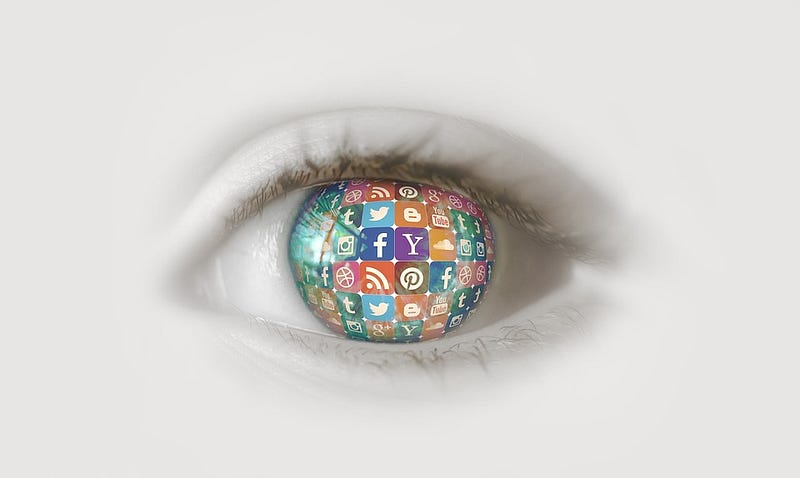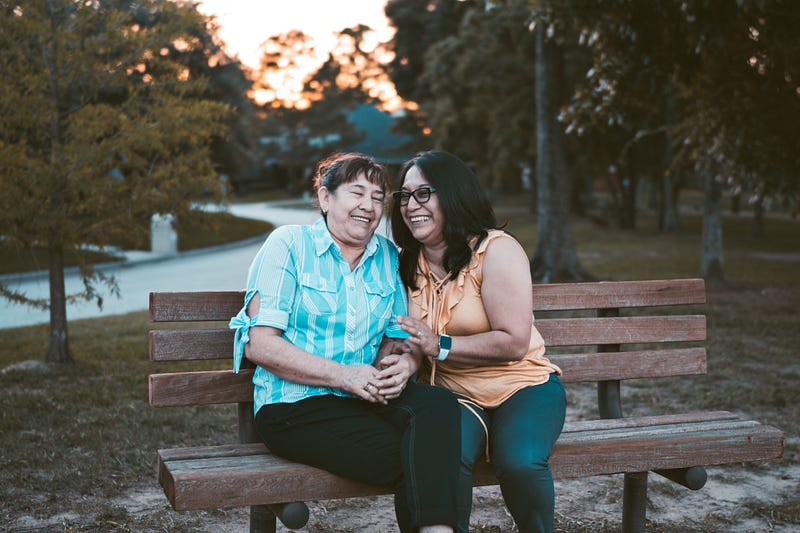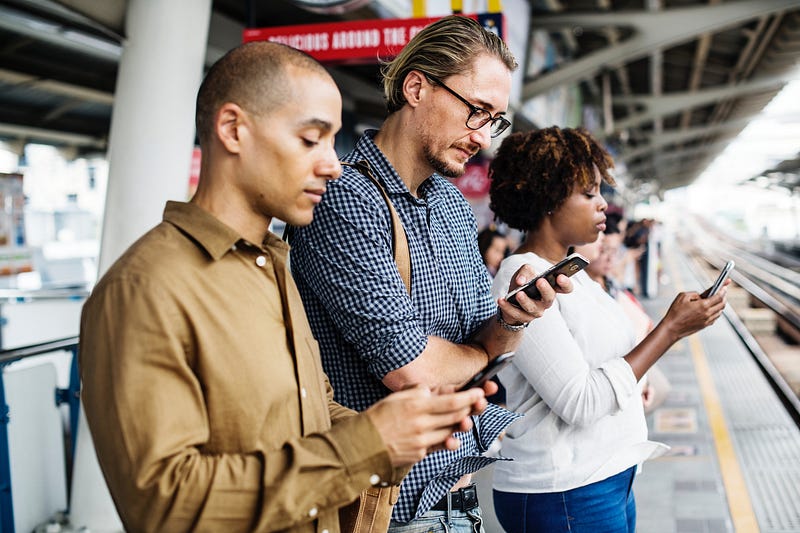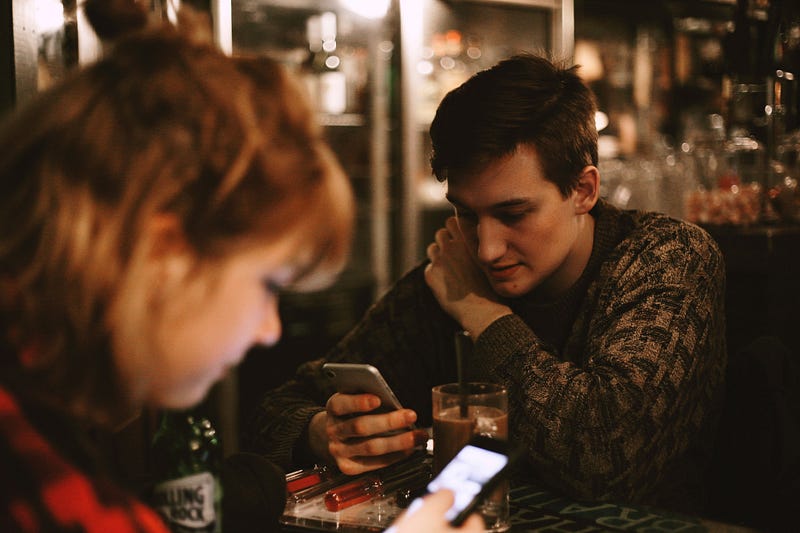 |
| Image by Geralt on Pixabay |
I left Facebook (FB) back in June of 2018 — not long ago. In fact, I would like you to appreciate the fact that I left about a month before my birthday. I did that purposefully, and I am glad I did. For those familiar with that particular hook that keeps many in FB, it is the ego gratification of 50–100s of birthday greetings from “friends.” What I discovered is that the people I am truly close to found a way to wish me a happy birthday without FB — go figure.
Leaving, for me, wasn’t just about privacy issues and scandals, the experience of negative effects from FB, or the negative repercussions it and other social media has on young people. All of that definitely made my decision to leave FB more firm and resolute, yet my personal reasons for leaving revolved around how FB tended to suck the creativity and inspiration out of me, while also leaving me at a loss in another way.
The layers of FB became over-stimulating, yet empty, and I saw how relationships I was excited to have on FB eventually faded into laziness and apathetic connections. I was receiving way too much input, much of it useless, with very little return, and it became a compulsive loop of behavior to check in anyway, and scroll into oblivion.
As we know, there are real benefits to social media like FB, and I really miss a few truly good groups and quality sharers. But, not enough to compromise what I have re-gained in leaving. I am more inspired, more motivated, and more productive since leaving FB. I will add the caveat that my husband is a musician who benefits from the local events aspect of FB, so he remains there in a minimal way. He does show me pics of close family and friends when he is on. Some people only share on FB, and don’t visit or call their friends much. They certainly don’t visit with weekly photos of everything they are doing— and aren’t we glad people don’t — in real life? So, I have contact with FB, but it is quite minimal.
I had been on the platform since around 2008. In that span of time a lot changed, on Facebook and on the Internet in general. The very first version I experienced of FB was the best one, in my opinion. It wasn’t layered or mired with problems, and was kind of old school in a good way.
As FB aged and morphed into what it is today I became more and more annoyed at how it is so unnecessarily complex, and breaches basic healthy boundaries of relationship. For example, people could force me to join a group message or a group without asking me first, and my relative’s friends may friend me, or unfriend me.

Can you imagine if that happened in actuality with the forced group join? Someone comes over to my house, forces me into their car, and takes me to their favorite Meetup group about something that I am not interested in at all. They don’t say hello. They don’t explain. In fact, they don’t even normally talk to me, nor do they, when they come to get me for their group.
That is seriously messed up.
And when we want to leave a group message that we didn’t create, and don’t want to be a part of in the first place, FB announces to the group that “so-and-so” left.
Awkward.
Poor structure and design like that creates interpersonal conflict and tension that would not have been present otherwise.
FB structures place tension upon relationships, and create problems, where none would normally have existed.
Facebook creates unnatural and forced connections in other ways as well. There isn’t a natural and healthy boundary of acquaintance, co-worker, past friend, current friend, family, etc.
FB puts everyone at the same par, tone deaf to the real life varying levels of intimacy to estrangement. There is no nuance or spectrum, despite their claim that we can tailor who and what we see.
That is true in word, but unspoken norms force us (against our natural and healthy instincts) to accept friend requests and to “like” comments in certain circumstances. Not to mention the tiresome and layered controls to filter out who you don’t want to deal with. For non-tech savvy people, it is too complex, too many layers!
This seems a gross mismanagement of relationship to me. If someone saw me a few times in real life, or just once, or they know my spouse, mother, or a friend of a friend, or some other awkward connection, there comes an eventual request (demand) to become a FB “friend.”
In addition to this, FB makes actual friendships and true connections lazier and taken for granted, because of the sharing and over-sharing going on. There becomes no need to connect, when you already feel that you know and see everything. The connection won’t deepen in most cases.
Some of the curses of FB — like misunderstandings, unfriending, abuse of invitations, blocking, monologues, showboating, and a junked feed — even when preferences are dialed in — can have long term consequences in real life. Dynamics, relationships, and patterns of relating outside of FB are altered because of FB.
There are, of course, good things to it too, or people wouldn’t stay. The good things go like this: instant gratification of connection to friends and family in real time — despite geographical distance — with photos and thoughts; conversation with wonderful people (in groups or individually) you wouldn’t have otherwise met or known about; free easy access to community, local events, local businesses, some grassroots activism via events, and “do-gooding” that is shared. That’s it. The rest is junk and a headache (I am not going to even talk about privacy issues or Messenger, ugh).
All of this, so far mentioned, are just the trivialities — a distraction from the actual reality of Facebook. The reality of the virtual face book of friends, FB, is that it is not free — not really — not at all.
The proverb goes, “The best things in life are free.” That is true, in a deep, spiritual, and practical way. Quality time with loved ones, true friendship, health, libraries, silence, peace, joy, a compassionate presence when one is suffering; thinking, breathing, feeling, loving; being active, time in nature, and that sort of thing are free and they are, arguably, the best!
Some things in life that aren’t free can also be the best, like: dessert, traveling, and health care. And some things in life are meant to be free, but aren’t always, like: clean water and air, civil rights, and education.

Yes, FB, in stark reality of money/dollars and fees is quite free, unless we pay for advertising for our business or organization. Yet, we are paying dearly for all that free space and time on Facebook. Yes, the important thing to ask ourselves is: Are we aware of it?
Facebook not only mines our data, it also mines our personal resources — our time, energy, emotions, thoughts, beliefs, and self-worth.
Our personal resources are our fundamental, and most valuable currency in life.

Our personal resources are as precious as our shared resources are: water, air, soil, land, ecosystems, communities, social security, insurance, health care, and education.
Your unique presence, energy, feelings, thoughts, being, and time are immeasurable in monetary value.
Let’s take a closer look at what we are using to pay FB, and what FB gives us in return.
- We pay FB with our time. FB gives us endless scrolling, hooks, bells, and emojis. Endless
scrolling enables prolonged visits. And despite tailoring one’s
preferences and only following what is of most interest, there still
seems to be a downhill slope of long and endless scrolls to find
substance, or whatever. FB is designed to be as addictive as possible in
order to keep you there for as long as possible. FB is funded by
advertisers, researchers, and business. They want to hook us and keep us
there for many reasons. Giving away our time to FB can be like giving
away our prized possessions or money to someone who doesn’t really care
about, and wants to take advantage of us. I don’t know about you, but
when I find a person who consistently seems to want to take advantage of
me, I steer clear of them. It’s a big turn-off, you could say. FB is an
ongoing loop of Pavlovian type conditioning (emojis, likes, and echo
chamber affirmation) to keep us hooked. In real life, with jobs and
work, we are paid by our time — hourly or via salary. Paying FB with our
time can result in us being trapped in a subtle addiction that we are
tempted to never take seriously, minimizing our own value and the value
of our time and life.
- We pay FB with our presence. FB gives us virtual space, networking ability, and simulates community for us.
This is, by far, is our most valuable and powerful personal resource — our
presence, each person’s presence — also known as health, energy, and
being. What is the most real and important gift you can give to another
person? Your presence. It costs nothing, yet it is precious. When a
loved one dies, what aches more than anything else? The physical absence
of our loved one. And when we are ill or scared or hurt, what is the
greatest salve? The loving presence of someone who is really there. The
energy and being that is you, each of us, is unique and irreplaceable.
There is no real monetary equivalent for what our presence is worth.
Sharing it with others needs to be considered seriously and consciously.
FB simulates an experience for us, which is virtual. FB
simulates the experience of community, company, friendship, and
presence. This simulation can act as a replacement for real physical
contact with people — it can sometimes end up replacing the impulse to
engage in real intimacy, dialogue, and friendship. Seeing someone else’s
photos, comments, and shares can take away the natural desire to
connect and go deeper. So, as we pay with our presence, spending time,
energy, and attention on FB, we are given, in exchange, FB’s
dysfunctional simulation of connection, friendship, and community. In
addition, what we choose to share on FB can make us seem like our life
is something other than it really is. We shut our selves off from real
sharing, and sometimes we become depressed thinking our lives aren’t as
good as what others are sharing theirs to be on FB. Our mental health can suffer due to social media. It is fair at this point to acknowledge that for some folks who are unable to socialize or connect due to real challenges, disabilities, or limitations, this sort of community can be a huge blessing. I don't wish to detract from that. Yet, I still assert that things are not incredibly ethical or healthy there.
- We pay FB with our beliefs. FB helps us to segregate ourselves! We customize our experience according to our beliefs and values.
We provide FB with an ongoing anthology of our beliefs. What we believe
can be: scientific, logical, religious, political, philosophical,
moderate, extreme, esoteric, sci-fi, moderate, extreme or hate-based. It doesn’t matter.
All sides, spectrums, views, statements... can be manipulated, researched, and used — all of it is data
that can be capitalized upon — by corporate, private, and political
interests. This collective data of our beliefs, choices, habits, REACTIONS, and
preferences allow unprecedented amounts and kinds of information about
the psychology of us, and more. Propaganda and advertisers have long hinged their
approaches upon the hidden psychological tendencies, habits, and
weaknesses of humans in order to profit and manipulate, in order to gain power, dominance, and profit. FB
is no different. FB states an altruistic motive and mission as its
operative and public goals. Yet, only when it has been exposed has FB
decided to purge accounts that were created to sabotage our political
system. Accounts still remain that are openly violent, hateful, and
abusive. FB does not close them all, despite the claims of being
altruistic. In reality, the currency of our beliefs can be used,
manipulated; and may be seen as a greater value of currency than money,
for those who wish to dominate in power, corruption, and greed. Paying
FB with our beliefs can be tricky, because for those with low income and
startups with no capital, FB may be one of the few platforms where they
can network and make a way for themselves. Another disturbing trend on
FB related to the currency that is our beliefs, is this: there is a
general consensus, among even professionals, that there is no need to
fact check or for accuracy of statements made on FB — as if we set aside
our ethics and standards at the FB login. The seemingly small
degradation of due research and verifying information is, in actuality,
no small erosion. It creates a wide gate for more unhealthy relating,
distortion, and abuse on the Internet at large.
- We pay FB with our emotions. FB gives us ways to express our emotions, all the time. Our
emotions are neither good or bad. They simply are. There is no real
need to judge them. When we simply acknowledge the feelings we are
having, and handle them in healthy and constructive ways, it is all
good. Emotions are natural responses to life and living — they are
instinctual. Emotions only become bad when we react in harmful ways,
hold on to them, and allow them to fester; or push them down and deny
them until they explode or implode — harming ourselves or others.
Emotions can be directly tied in to our beliefs. If we identify with our
beliefs — if we think we are what we feel and believe — then it becomes
very easy to be emotionally manipulated, and to become emotionally
reactive when our beliefs/values are being threatened or attacked, or
we think they are. Few adults, let alone children, are taught how to
handle and healthfully channel emotions. We need to, but it doesn’t
happen formally, or commonly enough. And that is what advertisers and
politicians count on. Emotions and political fights and tirades run high
on FB. It's great for profits, but is it healthy or productive? If it was a platform that
encouraged and facilitated healthy boundaries and relationships, and
healthy techniques, paying with our emotions wouldn’t be a problem,
really. Paying with our emotions is a drain to our energy, as it is. It is energy
and time that can be otherwise spent being and doing what fulfills us; and toward what makes a difference in our lives and the lives of others. Sometimes
we can do that and share it on FB. Some are doing amazing good, and
sharing it there in healthy ways. And that is the good of it. But, those are the exceptions, not the
overriding experience on FB. They are the healthy fish in a sea of
plastic waste. Emotions, when healthy and flowing naturally, with a
responsible awareness, do not attack, or over-react to what is or isn’t
happening. That doesn’t mean that we can’t express anger. It is healthy
to express anger. Just not in ways that harm others or build up a force of hate and sabotage. Sharing our
emotions with one another in an honest, supportive, and responsible way
can lead to transformation and growth. If we understand how our emotions
work and are responsible for them, then we can consciously choose to
withdraw our unhealthy emotional payments to FB.
- We pay FB with our self-esteem. FB gives us ego-gratification hits via likes and followers. There are many ways that we pay FB with our emotions, yes. Our emotions and thoughts are directly linked to our self-esteem. Healthy self-esteem allows us to have healthy relationships and self-worth that is neither too narcissistic nor too selfless. Positive self-esteem and a healthy valuing of our life and self leads to greater fulfillment and better quality relationships. Self-esteem is a root that our values, beliefs, and possessions take shape around. Healthy self-esteem in such a corrupt and superficial culture is hard won. Many of us who have it, may still struggle with keeping it. It has been found that those with self-esteem issues and low self-worth may be vulnerable to FB addiction. FB capitalizes on our weaknesses in relationships and in our self-esteem. We pay by disclosing our likes, emotions, thoughts, and giving up much of our time and energy to it. Facebook found a way to appeal to all sorts of people with the “like” button. The like button then got enhanced with options for emoji reactions within the like button. This button and it’s emojis are the veritable morphine-like shot of ego buffing that hooks so many. For those with low self-esteem, for those with big egos, for those with narcissistic tendencies, for those hungry for affirmation — the like button and accompanying emojis are both the Pavlovian bell to condition us, and the drug of choice to keep us hooked. Better yet, for FB, the data we provide through our habits with likes, emojis, browsing, and our emotional reactions are, collectively, providing studies of human vulnerabilities and thought like never before, while conditioning people to stay stuck within FB’s exacting patterns and loops.

Facebook is intentionally complex and layered in order to make the many hooks and complications a part of the difficulty, should you want to leave for good.
Yet, is FB so different from Twitter, Reddit, Linkedin, and Instagram (owned by FB)? And what about Google? And other addicting apps? And mobile phones in general?
We pay them all with our presence, time, energy, and other personal resources.
Is Facebook worse? Or is it all a part of a new age, where we engage in it all without realizing how we are being conditioned and preoccupied by it? Without seeing how many are being radicalized and miseducated by it.... Not to mention what the unknown repercussions may be for our evolution and health…
I am not sure, but I know that FB is one of the most influential and massive —there are over 2 billion active monthly users, and 76% of those are women; and over 80 million fake accounts. With this kind of massive reach and power, comes even greater responsibility, and need for accountability and ethics.
Not everything about Facebook or social media and apps is negative, as I have said. A lot of it can be utilized in positive, inspiring, and life-giving ways. But it isn't really. There are bright spots, but it also gets murkier and uglier as well.
We need to call for more ethical standards, accountability, and teach conscious choice and engagement. Facebook wants to be “a force for Good.” I think that is wonderful. And, if that is true, many things need to change!

Our part in this, is that we need to be more conscious of what we agree to, and what free actually means.
If you are looking for ways to take back and regenerate your precious personal resources, also known as your personal wealth — start by unplugging from the machine from time to time.
Leave platforms that drain you.
Use only what facilitates a more real and better expression of you and your life and relationships. Take walks without technology, when it is safe to. Eat meals with friends and family without technology butting in.

Be present to the people around you. Make a homemade meal with a loved one with the computer and phone off, or at least away and silenced.
Also, consider why animals and animal companions are so loved and enjoyed by so many of us. What is it about them? They are present. They are timeless and here. They don’t make our relationships and time more and more complex, strained, dangerous, or fake. They are real, honest, bundles of love, energy — exactly who they are. They don’t want to mine our data. They are truly here with us.
We need to make the most of the technology we have, and utilize it in productive and life-giving ways. We need to create structures and standards that serve us and all life on Earth in the best of ways. Until then, we have to nurture a mindfulness about what we are choosing and how we are choosing it, and what it really costs. If it's worth it, maybe you are doing something important and good. Please continue. If not, consider what needs to change, for the better.
*exported from my old Medium account
Update: I did return to FB a few years later after a death and some serious illness in the family. I remain on it, but in a very different and more limited way. And that is okay. I appreciate those doing good there. And I see how all of the Internet, with all its brilliant potential, has become even more difficult, stressful, dangerous, and deceptive. I hope for the best, as always, and remain realistic about it too. Most of all, the youth carry these effects and ramifications in ways we don't comprehend (we meaning, those of us who know life without social media and the Internet as it is now).